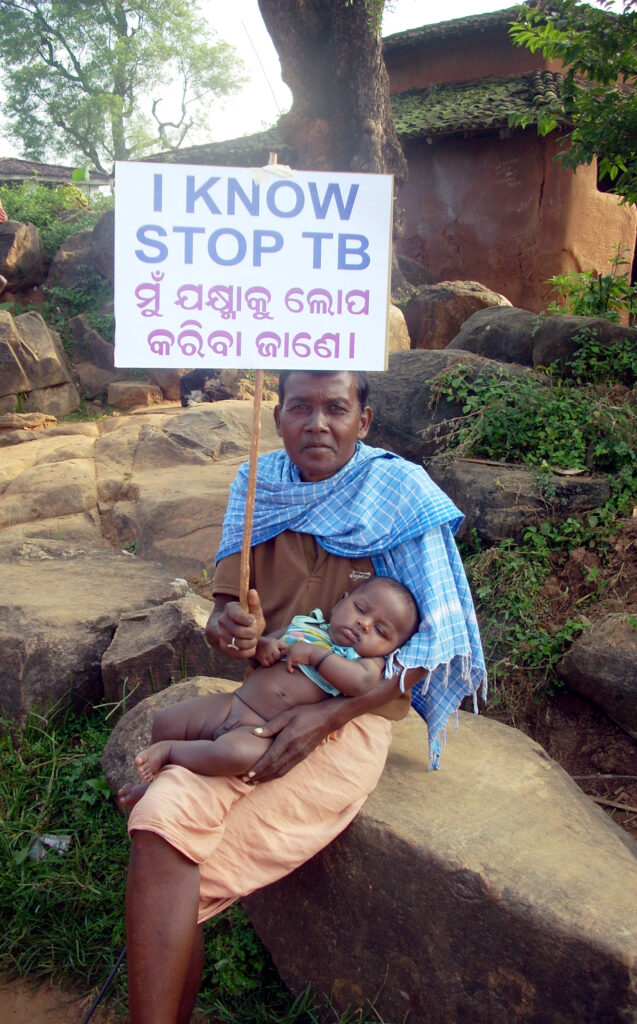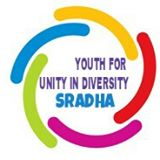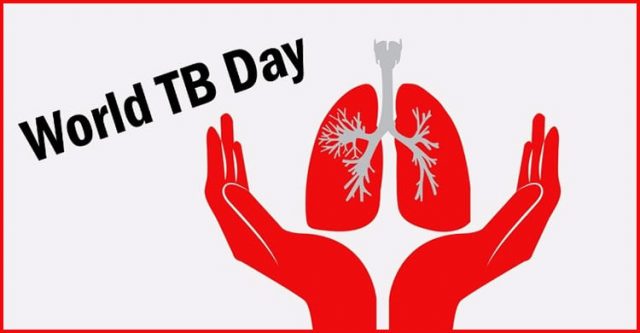
OUR Strategic Objectives:
- Amplifying and scaling up active engagement of communities affected by Tuberculosis, especially TB survivors and key populations in our TB programme
- Advocacy, Communication and Social Mobilisation (ACSM) across all aspects of TB Elimination aiming to build greater commitment of stakeholders to fighting TB
- Mobilize, empower and engage women, men and transgender persons in the TB response at the health system and community levels
- Mobilize, empower and engage TB survivors, civil society and other TB stakeholders to reduce human rights and stigma related barriers to access TB services
Community:
- SRADHA is actively engaged in amplifying and scaling up active engagement of communities affected by Tuberculosis, especially TB survivors and key populations in our TB programme in Boudh, Kalahandi, Sundargarh and Sonepur districts of Odisha. This includes capacity building and facilitating involvement of TB Champions in TB service delivery as peer counselors and facilitators of Peer Support Groups, for supporting community-based advocacy in identifying and recording incidents of human rights infringements and building social movement at grass root levels for ending TB and TB related stigma and discrimination; engagement and capacity building of TB survivors and Key population representatives in measuring incidents of stigma and developing strategies to reduce TB stigma in the community.
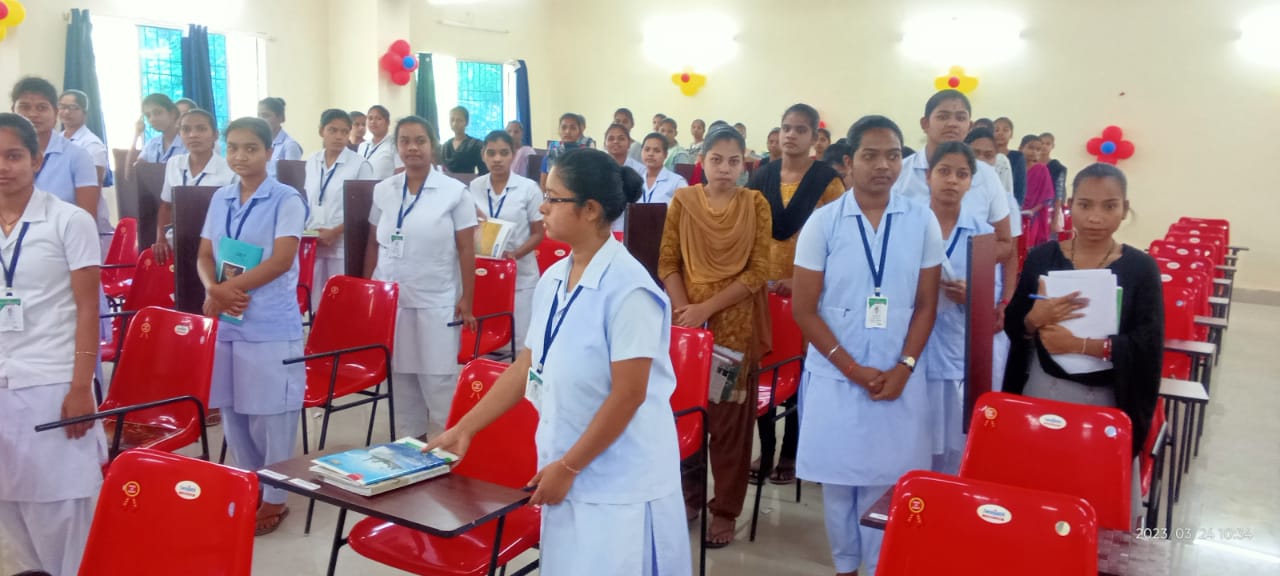
Gender and Rights
In our project districts, Boudh, Kalahandi, Sundargarh and Sonepur districts of Odisha, more men report microbiologically confirmed pulmonary TB and women have clinically diagnosed pulmonary TB and extra-pulmonary forms of TB.
Although men in these districts experience higher incidence of TB, women are more socially vulnerable to the disease as they experience unique, gendered challenges such as stigma and social repercussions related to suffering from TB as well as others related to power dynamics and economic independence. Additionally, TB is one of the predominant causes of death for women in these tribal and mining districts, especially among women of reproductive age. TB specifically has increased women’s health risks: women living with HIV the districts are highly susceptible to developing active TB during pregnancy or soon after delivery, making TB a leading cause of death during pregnancy and delivery. TB also causes infertility, further compounding the stigma faced by women living with TB. Such stigma often create economic barriers for women with TB and therefore it hinders to a larger extent the woman’s ability to access treatment and care. TB and infertility stigma also put women at a greater risk for experiencing gender-based violence. Research also shows that the prevalence of HIV-TB co-infection is higher among women and among transgender persons who live in overcrowded houses and consume alcohol.
At its core SRADHA has crafted strategies that envisage to:
- Scale up services and interventions that reduce human rights violation, stigma and
- Gender related barriers and vulnerabilities to TB infection/disease;
- decrease the burden of disease for those most at risk;
- mitigate the impact of TB, and
- address structural inequalities and discrimination
- empower and engage TB affected communities
Our specific interventions:
- Provide equitable, rights-based TB services for women, men and transgender persons by adopting a gender-specific programmatic approach at all levels
- Undertake ToTs to create of a pool of trained manpower in each project district, for undertaking training on gender-responsive approach at State and district level and training of district level personnel on gender- responsive programming.
- Build capacity of frontline health workers on the gender perspective and providing comprehensive person centric care through sensitization programme and refresher sessions.
- Conduct baseline assessment of facilities, infrastructure and linkages including assessment of provider knowledge on gender-responsive programming and existing gender-sensitive practices
- Ensure respectful behaviour towards people with TB, confidentiality of their diagnosis and personal health information, and anonymity of identities during and beyond the treatment period
Disruption of the routine Health Care Services in Mining Communities:
Due to remoteness, sparsely spread, and hilly habitations, tribal populations are deprived of critical and timely medical interventions from the public sector infrastructure. The absence of transport facilities further triggers the difficulty in reaching services, especially for women and children. There is a basic denial of human rights in the designated tribal area regarding universal health coverage (UHC). Violence against tribal women is a legitimate human rights issue. The underlying causes of gender inequality are related to the social and economic structure, which is based on the informal and formal norms and practices. Culturally the tribal women have less access to resources, opportunities, and say in the decision-making processes. This is equally pertinent in the case of their health-seeking behavior. It is pertinent to note that there are as many as 132 people living with TB per 100,000 populations. This indicates the alarming situation in the Tribal belt of KBK districts of Odisha.
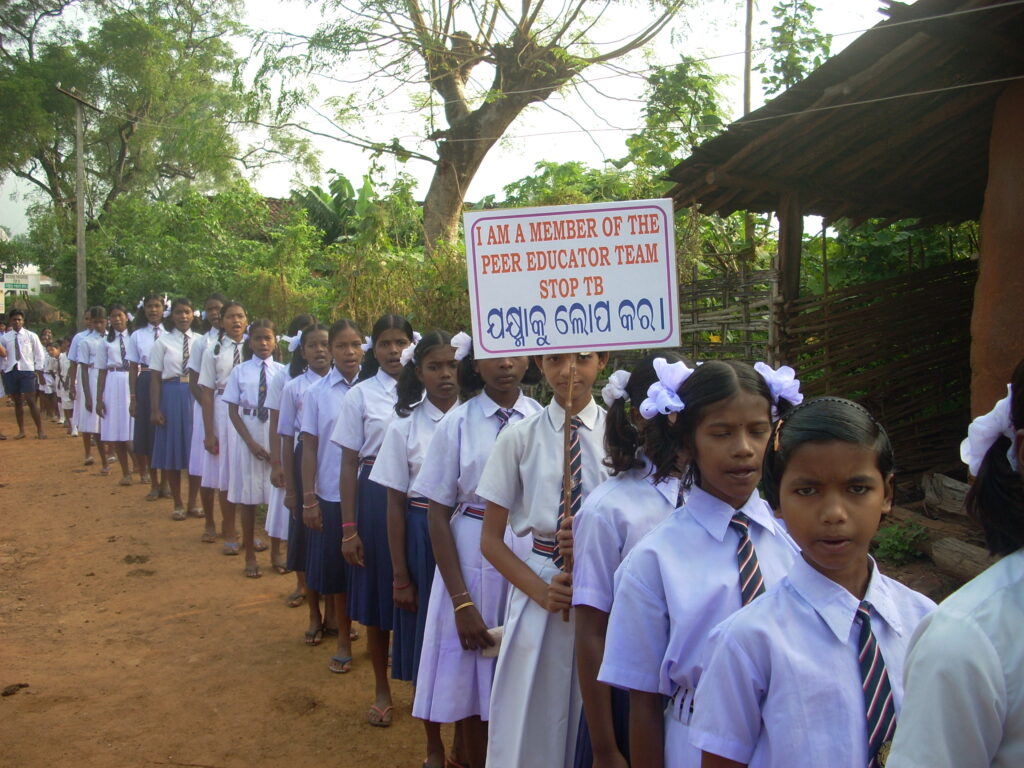
COVID-19 has severely disrupted routine health care needs in ASM communities particularly miners receiving care for human immunodeficiency virus (HIV), tuberculosis (TB), maternal/neonatal/child health (MNCH) issues, reproductive health (RH), and family planning (FP) including preventing unwanted pregnancy, and other occupational diseases as the entire focus are shifted to COVID-19 prevention and treatment.
SRADHA is exploring and trying alternative options for uninterrupted health care services including TB services – to mitigate the impact of COVID-19
The current social distancing and stay-at-home measures have made it particularly challenging for tuberculosis (TB) programs to provide the necessary diagnosis, treatment, and care for the people and communities affected by TB.
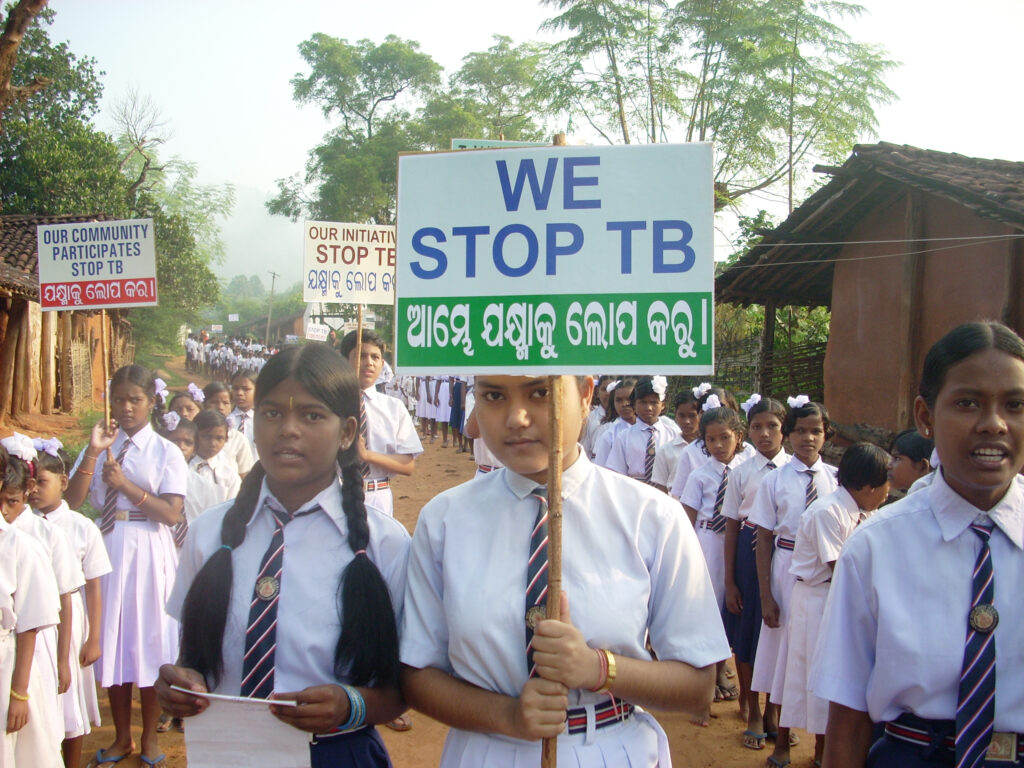
OUR OBJECTIVES
1 To support the formation of TB groups among affected tribal communities from 8 districts of the KBK region of Odisha.
2 To federate the block-level TB groups of tribal communities as district-level advocacy forums.
3 To advocate with Panchayat, block, district, and state-level media to bring visibility towards TB services for availability, accessibility, and need for the tribal area in the specific context of COVID-19.
4 To advocate with district and state-level TB officials for creation and enforcing tribal area-specific and exclusive policies for improved access of TB services.
5 To build capacity of front line health care workers on alternative options, such as virtual care, digital health, and community- monitoring solutions, to bring the required TB services to the affected tribal people and communities
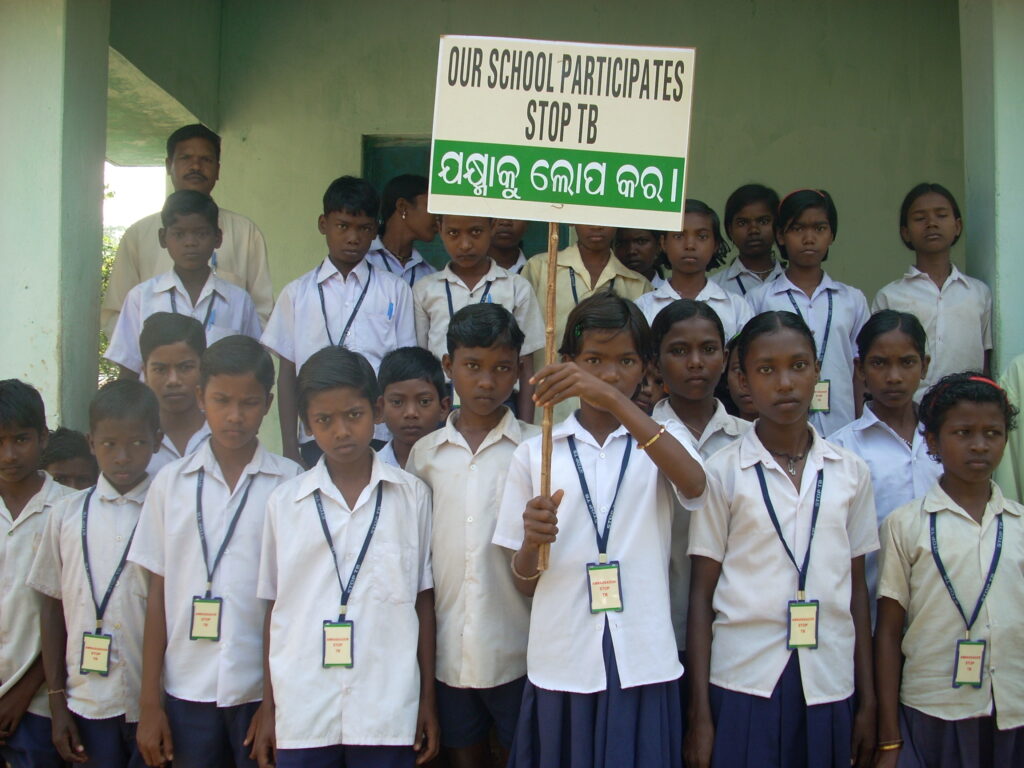
ALIGNMENT OF OUR PROGRAM WITH NATIONAL PRIORITIES AND THE TB STRATEGIC PLAN:
India has among the largest numbers of TB cases (23%) of the global total. The National Strategic Plan for TB Elimination (2017–2025) is a statement of commitment to eliminating TB by 2025 by the Ministry of Health and Family Welfare, Government of India. It proposes bold strategies with commensurate resources to rapidly decline TB incidence and mortality in India by 2025. Our initiatives facilitate advocacy and lobbying interventions and focus on the outreach of initiatives for TB prevention, care and control, strengthening the systems and promotion of policies to create an enabling environment by reaching the media, political and governance structures.
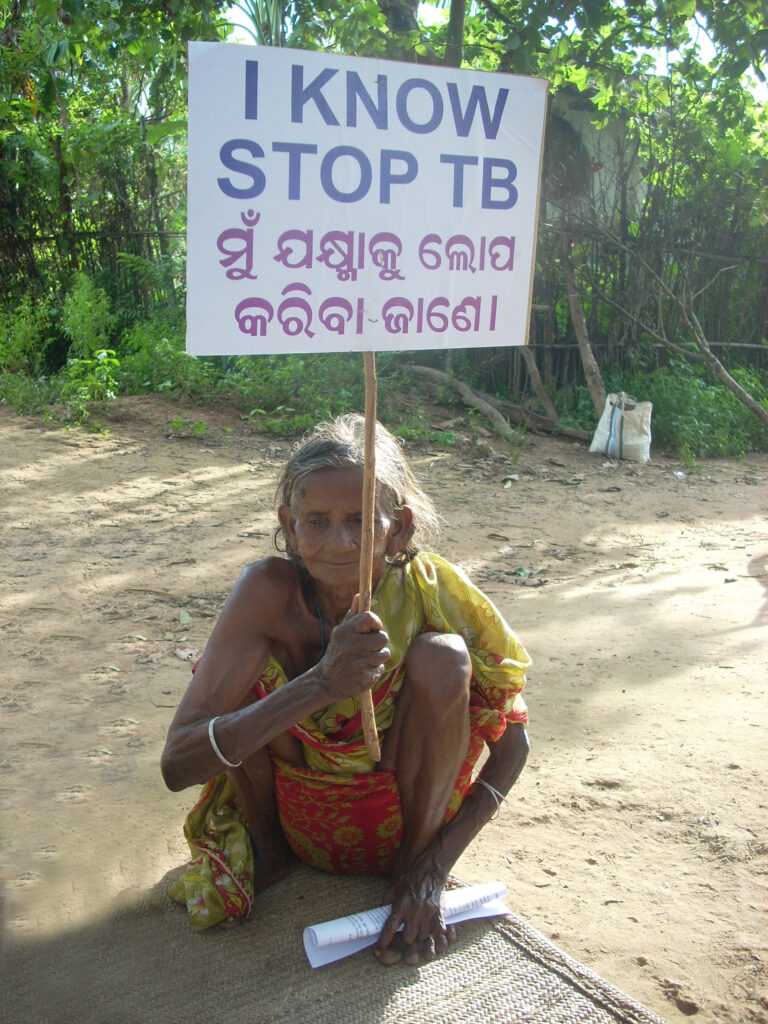
Our Interventions
- SRADHA together with local partners MEET and Centre for Development Action has taken initiative through front line health care workers to help support people with TB during the COVID-19 pandemic and beyond.
- SRADHA has identified and relied on alternative options, such as virtual care, digital health, and community- monitoring solutions, to bring the required TB services, without any delays and interruptions, as close as possible to the 10300 Artisanal and Small Mining (ASM) people (about 50% females) and communities in KBK districts of Odisha affected by TB॰
- SRADHA together with local partners has been involving educational institutions and community based institutions on alternative approaches for uninterrupted TB services during pandemic time.
